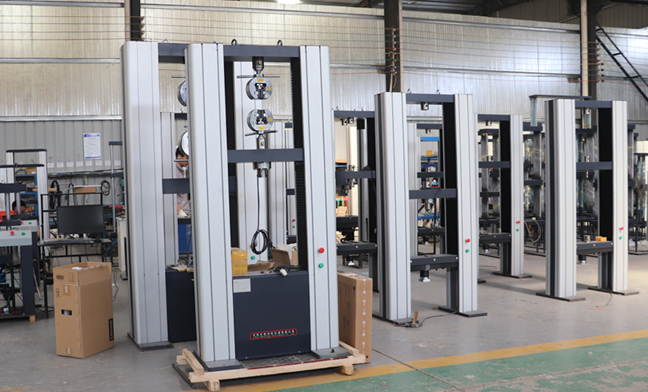Introduction: What is ASTM D638?
ASTM D638 is the standard test method for measuring the tensile properties of plastics. Tensile tests are vital for evaluating the mechanical performance of plastic materials under stress, helping manufacturers and engineers ensure that their plastic products meet necessary safety and durability standards. This testing method provides valuable data such as ultimate tensile strength, elongation at break, and modulus of elasticity—key indicators of how plastics will behave under real-world conditions.
The Importance of ASTM D638 in Plastic Testing
The ASTM D638 standard is essential for a wide range of industries, including automotive, medical, electronics, and packaging. Plastics are used in diverse applications, and understanding their behavior under stress is crucial for ensuring product performance and safety. ASTM D638 ensures that manufacturers and designers have reliable data about plastic materials, which is crucial for product design, quality assurance, and regulatory compliance.

The Role of Universal Testing Machines (UTM) in ASTM D638 Testing
Universal Testing Machines (UTMs) are the go-to equipment for conducting tensile tests in compliance with ASTM D638. These versatile machines are capable of applying a consistent force to plastic specimens and measuring their deformation. By using UTMs for testing, manufacturers can accurately assess the mechanical properties of plastic materials, including stress-strain characteristics, and ensure that they meet industry standards.
How Does a UTM Perform ASTM D638 Tests?
Specimen Preparation:
ASTM D638 outlines the specifications for preparing test specimens, typically in the form of a dog-bone shape. This geometry ensures a uniform distribution of stress during testing. The specimen is placed between the grips of the UTM, which then applies a stretching force to measure the material’s response.Test Setup and Procedure:
The UTM applies a tensile force to the specimen at a constant speed, as defined by ASTM D638. This test continues until the specimen fractures. Throughout the process, the UTM records both force and elongation data, which is used to calculate important mechanical properties like tensile strength and modulus of elasticity.Load Cells and Extensometers:
To ensure precise data, UTMs use load cells to measure the force applied to the specimen, and extensometers to measure elongation. These devices are crucial for accurate, real-time data collection and provide the necessary information to evaluate a material’s performance under stress.Speed and Temperature Control:
ASTM D638 specifies the rate of elongation for the test (typically 1 to 5 mm/min), and the test can be performed at varying temperatures depending on the plastic’s properties. Some UTMs are equipped with environmental chambers to control the testing temperature, ensuring consistency and accuracy.
Why Use a Universal Testing Machine for ASTM D638?
Precision and Accuracy:
UTMs are highly accurate and provide precise measurements of force, displacement, and elongation. This ensures reliable results that are crucial for materials testing in industries like aerospace, automotive, and medical devices, where performance under stress is vital.Versatility and Flexibility:
One of the main advantages of a Universal Testing Machine is its ability to test various materials beyond plastics, including metals, composites, and rubber. UTMs can be equipped with different accessories, such as grips, extensometers, and chambers, making them adaptable for a wide range of materials and test conditions.Compliance with Global Standards:
Compliance with ASTM D638 is a critical requirement for product certification in many industries. UTMs provide manufacturers with the tools necessary to ensure that their materials meet global testing standards, such as those set by ASTM, ISO, and other international organizations.Real-Time Data Collection and Analysis:
Many modern UTMs come with advanced software that automatically collects and analyzes the test data, generating stress-strain curves and other key performance metrics. This functionality streamlines the testing process and allows manufacturers to quickly assess material performance.Quality Assurance:
Testing plastic materials using UTMs in accordance with ASTM D638 helps manufacturers ensure that their products are reliable, safe, and meet customer expectations. By regularly performing tensile tests, companies can catch potential defects early in the production process.
Key Takeaways: Why ASTM D638 and UTMs Matter
ASTM D638 is a crucial standard for testing plastic materials under tensile stress, providing valuable data on the material’s strength, elasticity, and behavior under load.
Universal Testing Machines (UTMs) are the ideal equipment for conducting these tests with precision, offering accuracy, versatility, and reliability.
Compliance with ASTM D638 helps ensure that plastics meet safety, durability, and performance requirements in a variety of industries.
UTMs equipped with advanced software and accessories provide a comprehensive solution for testing plastics and other materials to meet global standards.

Conclusion: Invest in Quality Testing Equipment for Better Results
For any organization involved in the production or testing of plastic materials, utilizing a Universal Testing Machine (UTM) that complies with ASTM D638 is essential. These machines offer high-precision measurements, versatility for various materials, and comprehensive data analysis to help you ensure that your products meet the necessary performance and safety standards.
Investing in a high-quality UTM not only helps ensure compliance with industry regulations but also contributes to the reliability and sustainability of your products.
FAQ
1.What is the difference between ASTM D638 and ISO 527?
ASTM D638 is primarily used in North America, with unique specimen dimensions and shapes.
ISO 527 is more common in Europe and globally.
Both measure tensile properties but are not directly interchangeable due to different specimen geometries and test conditions.
2.What results are provided in an ASTM D638 test report?
A standard ASTM D638 test report typically includes:
Tensile strength
Elongation at break
Tensile modulus (elastic modulus)
Yield strength
Stress-strain curve
3.What materials can be tested under ASTM D638?
ASTM D638 is designed for plastic materials, including:
Thermoplastics (e.g., PP, PE, PVC, ABS)
Thermosets (e.g., epoxy, phenolic resins)
Reinforced plastics and composite materials








